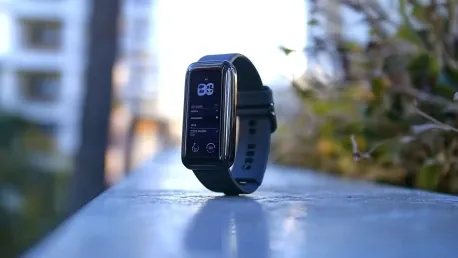Recent developments in Google’s ongoing efforts to maintain device safety have resulted in a controversial scenario for Fitbit Sense and Versa 3 owners. In an attempt to address the potential overheating risk of their batteries, Google has introduced a software update that severely limits battery performance. This update, while crucial for safety, has significantly reduced battery capacity, leading users to experience shorter intervals between charges and more frequent recharges. While the importance of user safety cannot be overstated, this measure has undeniably affected the overall user experience and satisfaction.
The release of this update follows a similar situation with the Pixel 4a earlier this year, where Google sought to address battery stability concerns. However, in the case of Fitbit Sense and Versa 3, users now face a more inconvenient outcome. If the update is not installed manually after receiving the notification, devices will only sync limited data before eventually undergoing a factory reset. This reset deletes alarms, goals, saved settings, and even stored payment information, thus forcing users to set up their devices from scratch post-update. While this ensures the device receives the critical firmware upgrade, it in turn creates substantial inconvenience for users.
Impacts of the Firmware Update
The consequential firmware update for the Fitbit Sense and Versa 3 undeniably brings a mixed bag of improvements and detriments. On one hand, the update is designed to improve battery stability, ostensibly reducing the risk associated with overheating batteries. Yet, this improvement comes at the substantial cost of reduced battery capacity, which significantly alters the usability of the devices. Affected users have reported having to recharge their devices far more frequently than before, detracting from the seamless experience typically expected from fitness trackers and smartwatches.
Alongside the immediate inconvenience of reduced battery life, users are also troubled by the enforced factory reset if the update is not manually installed. The data deletion following the reset includes critical user-specific settings such as goals, alarms, notifications, and payment information. For many, these stored preferences are integral to their daily routines, and the need to input this information afresh disrupts their experience quite significantly. The added concern lies with the ambiguity over whether manually installing the update can retain existing data, leaving many users in a quandary over how best to proceed.
Compensation and User Experience
To mitigate the inconvenience caused by the firmware update, Google is offering affected Fitbit Sense and Versa 3 owners a $50 compensation. This appeasement follows the precedent set during the Pixel 4a incident, where users could make a similar claim. Importantly, this compensation is available regardless of how frequently the device is used, addressing a broader range of affected users. This measure, however, does not fully counterbalance the reduced battery functionality and the overall inconvenience placed on users.
Unlike smartphones, the repair and replacement of batteries in fitness trackers and smartwatches, such as the Fitbit Sense and Versa 3, involve significantly more complexity. Consequently, Google has not presented an option to replace the faulty batteries, thus indirectly nudging users toward seeking upgraded devices. The overarching trend indicates an implicit push for users to possibly consider newer models, as they may offer better performance and functionality without the inherent issues present in these older devices.
Future Considerations
Google’s recent actions to enhance device safety have stirred controversy among Fitbit Sense and Versa 3 owners. To mitigate the potential battery overheating risk, Google rolled out a software update that drastically limits battery performance. This essential safety measure significantly reduces battery capacity, causing users to endure shorter battery life and necessitate more frequent recharging. Despite the critical need for safety, this update has inevitably impacted user experience and satisfaction.
This scenario is reminiscent of a similar issue with the Pixel 4a earlier this year, where Google addressed battery stability. However, for Fitbit Sense and Versa 3 users, the situation is more disruptive. If users do not manually install the update after notification, their devices will sync only limited data before triggering a factory reset. This reset erases alarms, goals, saved settings, and stored payment information, compelling users to set up their devices anew after updating. This process, while ensuring the essential firmware upgrade is applied, results in significant inconvenience for users.









